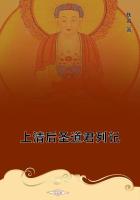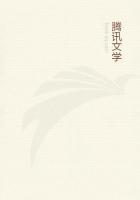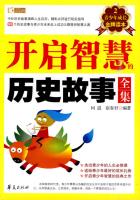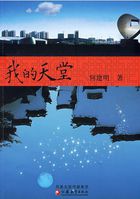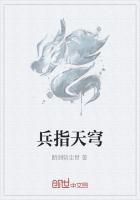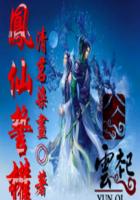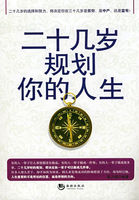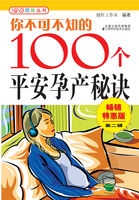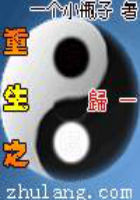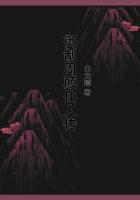These few words will explain to what heights of power the duke and the cardinal had attained. In spite of their wealth and the enormous revenues of their several offices, they were so personally disinterested, so eagerly carried away on the current of their statesmanship, and so generous at heart, that they were always in debt, doubtless after the manner of Caesar. When Henri III. caused the death of the second Balafre, whose life was a menace to him, the house of Guise was necessarily ruined. The costs of endeavoring to seize the crown during a whole century will explain the lowered position of this great house during the reigns of Louis XIII. and Louis XIV., when the sudden death of MADAME told all Europe the infamous part which a Chevalier de Lorraine had debased himself to play.
Calling themselves the heirs of the dispossessed Carolovingians, the duke and cardinal acted with the utmost insolence towards Catherine de' Medici, the mother-in-law of their niece. The Duchesse de Guise spared her no mortification. This duchesse was a d'Este, and Catherine was a Medici, the daughter of upstart Florentine merchants, whom the sovereigns of Europe had never yet admitted into their royal fraternity. Francois I. himself has always considered his son's marriage with a Medici as a mesalliance, and only consented to it under the expectation that his second son would never be dauphin.
Hence his fury when his eldest son was poisoned by the Florentine Montecuculi. The d'Estes refused to recognize the Medici as Italian princes. Those former merchants were in fact trying to solve the impossible problem of maintaining a throne in the midst of republican institutions. The title of grand-duke was only granted very tardily by Philip the Second, king of Spain, to reward those Medici who bought it by betraying France their benefactress, and servilely attaching themselves to the court of Spain, which was at the very time covertly counteracting them in Italy.
"Flatter none but your enemies," the famous saying of Catherine de'
Medici, seems to have been the political rule of life with that family of merchant princes, in which great men were never lacking until their destinies became great, when they fell, before their time, into that degeneracy in which royal races and noble families are wont to end.
For three generations there had been a great Lorrain warrior and a great Lorrain churchman; and, what is more singular, the churchmen all bore a strong resemblance in the face to Ximenes, as did Cardinal Richelieu in after days. These five great cardinals all had sly, mean, and yet terrible faces; while the warriors, on the other hand, were of that type of Basque mountaineer which we see in Henri IV. The two Balafres, father and son, wounded and scarred in the same manner, lost something of this type, but not the grace and affability by which, as much as by their bravery, they won the hearts of the soldiery.
It is not useless to relate how the present Grand Master received his wound; for it was healed by the heroic measures of a personage of our drama,--by Ambroise Pare, the man we have already mentioned as under obligations to Lecamus, syndic of the guild of furriers. At the siege of Calais the duke had his face pierced through and through by a lance, the point of which, after entering the cheek just below the right eye, went through to the neck, below the left eye, and remained, broken off, in the face. The duke lay dying in his tent in the midst of universal distress, and he would have died had it not been for the devotion and prompt courage of Ambroise Pare. "The duke is not dead, gentlemen," he said to the weeping attendants, "but he soon will die if I dare not treat him as I would a dead man; and I shall risk doing so, no matter what it may cost me in the end. See!" And with that he put his left foot on the duke's breast, took the broken wooden end of the lance in his fingers, shook and loosened it by degrees in the wound, and finally succeeded in drawing out the iron head, as if he were handling a thing and not a man. Though he saved the prince by this heroic treatment, he could not prevent the horrible scar which gave the great soldier his nickname,--Le Balafre, the Scarred. This name descended to the son, and for a similar reason.
Absolutely masters of Francois II., whom his wife ruled through their mutual and excessive passion, these two great Lorrain princes, the duke and the cardinal, were masters of France, and had no other enemy at court than Catherine de' Medici. No great statesmen ever played a closer or more watchful game.
The mutual position of the ambitious widow of Henri II. and the ambitious house of Lorraine was pictured, as it were, to the eye by a scene which took place on the terrace of the chateau de Blois very early in the morning of the day on which Christophe Lecamus was destined to arrive there. The queen-mother, who feigned an extreme attachment to the Guises, had asked to be informed of the news brought by the three /seigneurs/ coming from three different parts of the kingdom; but she had the mortification of being courteously dismissed by the cardinal. She then walked to the parterres which overhung the Loire, where she was building, under the superintendence of her astrologer, Ruggieri, an observatory, which is still standing, and from which the eye may range over the whole landscape of that delightful valley. The two Lorrain princes were at the other end of the terrace, facing the Vendomois, which overlooks the upper part of the town, the perch of the Bretons, and the postern gate of the chateau.
Catherine had deceived the two brothers by pretending to a slight displeasure; for she was in reality very well pleased to have an opportunity to speak to one of the three young men who had arrived in such haste. This was a young nobleman named Chiverni, apparently a tool of the cardinal, in reality a devoted servant of Catherine.


